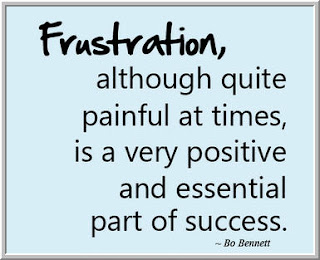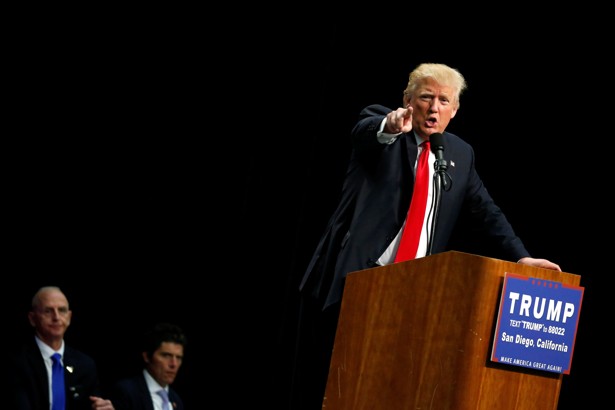Financial Markets and Economy
The side effects of negative interest rates are 'fanning out across the globe' (Business Insider)
The side effects of Negative Interest Rate Policies in Europe and Japan — what we’ve come to call the NIRP absurdity — are becoming numerous and legendary, and they’re fanning out across the globe, far beyond the NIRP countries.

Bond Traders Say Don't Count Out June Hike After Yellen Remarks (Bloomberg)
Treasuries traders who delayed holiday getaway plans on Friday took away a clear message from Federal Reserve Chair Janet Yellen — a mid-year interest-rate hike may be on the way.

OPEC is Driving Oil Prices, Blindfolded (Fox Business)
Two years ago, when Saudi Arabia and its fellow OPEC members started to balk at reducing crude production to keep oil prices elevated, they were playing the one card they could to keep long-term market share.

 This is the 'reckoning point' for a bunch of oil producers (Business Insider)
This is the 'reckoning point' for a bunch of oil producers (Business Insider)
Oil prices have rebounded over the past few months.
Both West Texas Intermediate and Brent crude are currently around $49 a barrel, well above their lows below $30 a barrel earlier this year.
Wall Street looks to economic data for clues on the Fed (Market Watch)
Memorial Day marks the unofficial beginning of summer, but baseball and barbecues may have to take a back seat to Fed watching for a while longer for investors who remain preoccupied with the timing of the Federal Reserve’s next rate increase.
Currency Tranquility Is Calm Before Storm as Risks Taunt Traders (Bloomberg)
It’s all quiet in currency markets, a little too quiet for some traders who warn that an uptick in volatility is just around the corner.

Here's how the finance industry plays tricks on you (Business Insider)
One of the problems with the typical “trust me, we got this” attitude that you often see with financial professionals is the fact that most of the time their unwitting clients don’t really even understand what’s going on in their own portfolios.
Japan's Abe Plans Up to $90.7 Billion in Stimulus, Nikkei Says (Bloomberg)
Japan Prime Minister Shinzo Abe will propose a fiscal stimulus package of as much as 10 trillion yen ($90.7 billion) after warning Group of Seven leaders that the global economy faces significant risk of another crisis, according to the Nikkei newspaper.
 Italy’s broken banks show the dangers behind the euro (Telegraph)
Italy’s broken banks show the dangers behind the euro (Telegraph)
I was in Milan last week, giving a talk on Brexit, when news broke that Italy’s biggest bank had lost its chief executive.
UniCredit is close to crisis, its share price having plunged 40pc during 2016. The entire Italian banking sector is looking extremely fragile, in fact, with bank share prices down, on average, by a third since the start of the year. You don’t think that matters to the UK? Well, think again.
How Does Bail Cause Convictions? (The Atlantic)
Last week, I wrote a story about the economics of money bail, which focused on a new study using criminal data from the arraignment system in Philadelphia to look at whether being assigned money bail increases the probability of conviction. The findings were troubling: The researchers found that money bail increases the probability of conviction by about six percentage points.
 Lufthansa suspends Caracas flights as Venezuelan economy struggles (Business Insider)
Lufthansa suspends Caracas flights as Venezuelan economy struggles (Business Insider)
German airline Deutsche Lufthansa AG said on Saturday it will temporarily suspend flights to Venezuela as of next month due to economic difficulties in the South American nation and problems converting local currency into dollars.
Rouhani Says 5% Iran Economic Growth Still Possible This Year (Bloomberg)
President Hassan Rouhani said Iran can still meet its target for economic growth this year even as major European banks remain reluctant to do business with the Islamic Republic for fear of U.S. sanctions.
'Turbocharged:' Trading firms are drawing up battle plans so they don't go bust if there's a Brexit (Business Insider)
City of London trading firms are trying to stop customers making risky trades in the run-up to June's European Union membership referendum in a bid to ensure firms don't go out of business if there are wild swings in the market following the result.
 Meeting the Challenge of Secondary Frustration (TraderFeed)
Meeting the Challenge of Secondary Frustration (TraderFeed)
One of the most common emotional challenges faced by traders is frustration. Frustration can cause us to lose our focus. It can lead us to make rash, impulsive decisions. Little wonder that traders hope to trade in a zen mode, completely emotion free.
As long as we care about trading outcomes, however, there can be no emotion-free trading. Nor would freedom from emotion be desirable for traders.
Politics
 Trump Attacks a "Mexican" U.S. Federal Judge (The Atlantics)
Trump Attacks a "Mexican" U.S. Federal Judge (The Atlantics)
Gonzalo Curiel is a federal judge in southern California and a former federal prosecutor. He is also, according to Donald Trump, “a hater of Donald Trump.”
The presumptive Republican nominee for president devoted almost a quarter of his hour-long rally in San Diego on Friday night to criticizing Curiel, who is currently presiding over a class-action lawsuit against the real-estate businessman for his role in Trump University.
 Marco Rubio's Massive (Yet Defensible) Flip-Flop (Bloomberg View)
Marco Rubio's Massive (Yet Defensible) Flip-Flop (Bloomberg View)
In February, Marco Rubio declared, "We cannot be a party that nominates someone who refuses to condemn white supremacists and the Ku Klux Klan." This week, he said he'd be "honored" to campaign for just that man. Self-serving? Yes. Cowardly? Yes. But Jonathan Bernstein says Rubio's flip-flop is perfectly defensible political behavior.
Technology
 Rise of Mechagodzilla: Nissan's 600-horsepower 2017 GT-R NISMO (Mashable)
Rise of Mechagodzilla: Nissan's 600-horsepower 2017 GT-R NISMO (Mashable)
If Nissan's GT-R is Godzilla, the 600-horsepower GT-R NISMO is Mechagodzilla.
On Friday morning, Nissan unveiled the 2017 GT-R NISMO, the most extreme version of the "new" GT-R that debuted at the New York Auto Show in April.
 Xiaomi’s Cheap New Drone Achieves Impulse-Buy Airspace (Wired)
Xiaomi’s Cheap New Drone Achieves Impulse-Buy Airspace (Wired)
Xiaomi, a company best-known for producing surprisingly affordable, high quality smartphones you can’t buy in the US, has added to its roster a surprisingly affordable, (probably) high-quality drone—that you can’t buy in the US.
Health and Life Sciences
 Could Thinking Positively About Aging Be The Secret Of Health? (NPR)
Could Thinking Positively About Aging Be The Secret Of Health? (NPR)
The dictionary defines ageism as the "tendency to regard older persons as debilitated, unworthy of attention, or unsuitable for employment." But research indicates that ageism may not just be ill-informed or hurtful. It may also be a matter of life and death.
![[No Caption]](https://www.quantamagazine.org/wp-content/uploads/2016/04/Hoffman_1K.jpg) The Evolutionary Argument Against Reality (Quanta Magazine)
The Evolutionary Argument Against Reality (Quanta Magazine)
As we go about our daily lives, we tend to assume that our perceptions — sights, sounds, textures, tastes — are an accurate portrayal of the real world. Sure, when we stop and think about it — or when we find ourselves fooled by a perceptual illusion — we realize with a jolt that what we perceive is never the world directly, but rather our brain’s best guess at what that world is like, a kind of internal simulation of an external reality. Still, we bank on the fact that our simulation is a reasonably decent one. If it wasn’t, wouldn’t evolution have weeded us out by now? The true reality might be forever beyond our reach, but surely our senses give us at least an inkling of what it’s really like.
 One of America’s healthiest trends has had a pretty unexpected side effect (Washington Post)
One of America’s healthiest trends has had a pretty unexpected side effect (Washington Post)
Few public health initiatives have been as successful as the campaign against cigarettes, an effort that began in the early 1900s and culminated in the now famous 1964 Surgeon's General report, which stated unequivocally that smoking causes cancer.
Life on the Home Planet
 Love in the time of climate change: Grizzlies and polar bears are now mating (Washington Post)
Love in the time of climate change: Grizzlies and polar bears are now mating (Washington Post)
Most Alaskans and Canadians have a bear story — tales of fearsome grizzlies, even polar bears. But a mix of the two?
They’re known as pizzlies or grolars, and they’re a fusion of the Arctic white bear and their brown cousins. It’s a blend that’s been turning up more and more in parts of Alaska and Western Canada.



